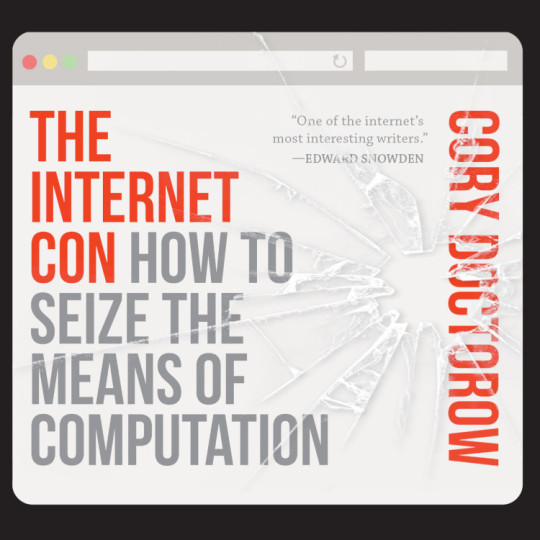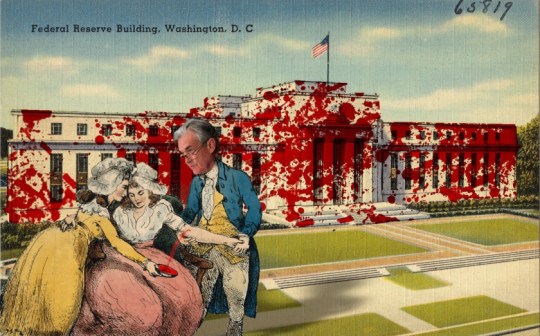#and a worker’s debt
Text
Every time I try to think critically about l’manberg from the point of one of the characters I keep running myself in circles thinking “yeah I would blow it up my-fucking-self” because they hate that place and how it effectively ruined all of them
#like do you ever think about how c!niki was full of life and hope to invest in l’manberg and then it effectively killed her#yeah I would be pissed off too#dsmp#dream smp#l’manberg#l’mantrio#if I were c!tubbo yeah I would feel good about the early times with my best friend and his older brother and all our other friends#but I’m forever stuck with those flashing lights behind my eyes just waiting and the taste of sea water#and a worker’s debt
10 notes
·
View notes
Text
This is going to sound so stupid but I only today realised that a significant number of people like....look down on retail & service industry work.
#Nothing like happened i'm just listening to Debt by David Graeber & thinking about things#Remembering when my coworkers wife was working in a cafe while she finished her masters#And I was like - ah I like that cafe! Does she like the work?#& he scathingly said#'well. its cafe work'#I feel stupid! This should be obvious!! I know people treat service industry workers like shit!#I guess my mammy - who raised me on her wages from 5 jobs at a time including everything from#Cross border peace development work to cleaning bedrooms in a b&b -#Simply did too good a job teaching me that any job worth doing is worth doing well. Has inherent dignity. Etc.#Also I have many friends who prefer being baristas to like. High paid lab work#Also i'm from a rural area where farm work is considered the Real Work& everything else is just filling in the gaps#And I grew up surrounded by teachers & civil servants & nurses who would pull a few shifts at a bar or hotel to make ends meet#So. I never really computed that some of this work is considered lesser.#tthat the people who do it are consdjered lesser by some.#And not just by outrageous snobs. By like. Average ppl with jobs that they can sit down in#This is blowing my mind I need a minute#Me Fein
33 notes
·
View notes
Text
Private equity plunderers want to buy Simon & Schuster

Going to Defcon this weekend? I'm giving a keynote, "An Audacious Plan to Halt the Internet's Enshittification and Throw it Into Reverse," on Saturday at 12:30pm, followed by a book signing at the No Starch Press booth at 2:30pm!
https://info.defcon.org/event/?id=50826

Last November, publishing got some excellent news: the planned merger of Penguin Random House (the largest publisher in the history of human civilization) with its immediate competitor Simon & Schuster would not be permitted, thanks to the DOJ's deftly argued case against the deal:
https://pluralistic.net/2022/11/07/random-penguins/#if-you-wanted-to-get-there-i-wouldnt-start-from-here
When I was a baby writer, there were dozens of large NY publishers. Today, there are five - and it was almost four. A publishing sector with five giant companies is bad news for writers (as Stephen King said at the trial, the idea that PRH and S&S would bid against each other for books was as absurd as the idea that he and his wife would bid against each other for their next family home).
But it's also bad news for publishing workers, a historically exploited and undervalued workforce whose labor conditions have only declined as the number of employers in the sector dwindled, leading to mass resignations:
https://lithub.com/unlivable-and-untenable-molly-mcghee-on-the-punishing-life-of-junior-publishing-employees/
It should go without saying that workers in sectors with few employers get worse deals from their bosses (see, e.g., the writers' strike and actors' strike). And yup, right on time, PRH, a wildly profitable publisher, fired a bunch of its most senior (and therefore hardest to push around) workers:
https://www.nytimes.com/2023/07/18/books/penguin-random-house-layoffs-buyouts.html
But publishing's contraction into a five-company cartel didn't occur in a vacuum. It was a normal response to monopolization elsewhere in its supply chain. First it was bookselling collapsing into two major chains. Then it was distribution going from 300 companies to three. Today, it's Amazon, a monopolist with unlimited access to the capital markets and a track record of treating publishers "the way a cheetah would pursue a sickly gazelle":
https://pluralistic.net/2023/07/31/seize-the-means-of-computation/#the-internet-con
Monopolies are like Pringles (owned by the consumer packaged goods monopolist Procter & Gamble): you can't have just one. As soon as you get a monopoly in one part of the supply chain, every other part of that chain has to monopolize in self-defense.
Think of healthcare. Consolidation in pharma lead to price-gouging, where hospitals were suddenly paying 1,000% more for routine drugs. Hospitals formed regional monopolies and boycotted pharma companies unless they lowered their prices - and then turned around and screwed insurers, jacking up the price of care. Health insurers gobbled each other up in an orgy of mergers and fought the hospitals.
Now the health care system is composed of a series of gigantic, abusive monopolists - pharma, hospitals, medical equipment, pharmacy benefit managers, insurers - and they all conspire to wreck the lives of only two parts of the system who can't fight back: patients and health care workers. Patients pay more for worse care, and medical workers get paid less for worse working conditions.
So while there was no question that a PRH takeover of Simon & Schuster would be bad for writers and readers, it was also clear that S&S - and indeed, all of the Big Five publishers - would be under pressure from the monopolies in their own supply chain. What's more, it was clear that S&S couldn't remain tethered to Paramount, its current owner.
Last week, Paramount announced that it was going to flip S&S to KKR, one of the world's most notorious private equity companies. KKR has a long, long track record of ghastly behavior, and its portfolio currently includes other publishing industry firms, including one rotten monopolist, raising similar concerns to the ones that scuttled the PRH takeover last year:
https://www.nytimes.com/2023/08/07/books/booksupdate/paramount-simon-and-schuster-kkr-sale.html
Let's review a little of KKR's track record, shall we? Most spectacularly, they are known for buying and destroying Toys R Us in a deal that saw them extract $200m from the company, leaving it bankrupt, with lifetime employees getting $0 in severance even as its executives paid themselves tens of millions in "performance bonuses":
https://memex.craphound.com/2018/06/03/private-equity-bosses-took-200m-out-of-toys-r-us-and-crashed-the-company-lifetime-employees-got-0-in-severance/
The pillaging of Toys R Us isn't the worst thing KKR did, but it was the most brazen. KKR lit a beloved national chain on fire and then walked away, hands in pockets, whistling. They didn't even bother to clear their former employees' sensitive personnel records out of the unlocked filing cabinets before they scarpered:
https://memex.craphound.com/2018/09/23/exploring-the-ruins-of-a-toys-r-us-discovering-a-trove-of-sensitive-employee-data/
But as flashy as the Toys R Us caper was, it wasn't the worst. Private equity funds specialize in buying up businesses, loading them with debts, paying themselves, and then leaving them to collapse. They're sometimes called vulture capitalists, but they're really vampire capitalists:
https://www.motherjones.com/politics/2022/05/private-equity-buyout-kkr-houdaille/
Given a choice, PE companies don't want to prey on sick businesses - they preferentially drain off value from thriving ones, preferably ones that we must use, which is why PE - and KKR in particular - loves to buy health care companies.
Heard of the "surprise billing epidemic"? That's where you go to a hospital that's covered by your insurer, only to discover - after the fact - that the emergency room is operated by a separate, PE-backed company that charges you thousands for junk fees. KKR and Blackstone invented this scam, then funneled millions into fighting the No Surprises Act, which more-or-less killed it:
https://pluralistic.net/2020/04/21/all-in-it-together/#doctor-patient-unity
KKR took one of the nation's largest healthcare providers, Envision, hostage to surprise billing, making it dependent on these fraudulent payments. When Congress finally acted to end this scam, KKR was able to take to the nation's editorial pages and damn Congress for recklessly endangering all the patients who relied on it:
https://pluralistic.net/2022/03/14/unhealthy-finances/#steins-law
Like any smart vampire, KKR doesn't drain its victim in one go. They find all kinds of ways to stretch out the blood supply. During the pandemic, KKR was front of the line to get massive bailouts for its health-care holdings, even as it fired health-care workers, increasing the workload and decreasing the pay of the survivors of its indiscriminate cuts:
https://pluralistic.net/2020/04/11/socialized-losses/#socialized-losses
It's not just emergency rooms. KKR bought and looted homes for people with disabilities, slashed wages, cut staff, and then feigned surprise at the deaths, abuse and misery that followed:
https://www.buzzfeednews.com/article/kendalltaggart/kkr-brightspring-disability-private-equity-abuse
Workers' wages went down to $8/hour, and they were given 36 hour shifts, and then KKR threatened to have any worker who walked off the job criminally charged with patient abandonment:
https://pluralistic.net/2023/06/02/plunderers/#farben
For KKR, people with disabilities and patients make great victims - disempowered and atomized, unable to fight back. No surprise, then, that so many of KKR's scams target poor people - another group that struggles to get justice when wronged. KKR took over Dollar General in 2007 and embarked on a nationwide expansion campaign, using abusive preferential distributor contracts and targeting community-owned grocers to trap poor people into buying the most heavily processed, least nutritious, most profitable food available:
https://pluralistic.net/2023/03/27/walmarts-jackals/#cheater-sizes
94.5% of the Paycheck Protection Program - designed to help small businesses keep their workers payrolled during lockdown - went to giant businesses, fraudulently siphoned off by companies like Longview Power, 40% owned by KKR:
https://pluralistic.net/2020/04/20/great-danes/#ppp
KKR also helped engineer a loophole in the Trump tax cuts, convincing Justin Muzinich to carve out taxes for C-Corporations, which let KKR save billions in taxes:
https://pluralistic.net/2020/06/02/broken-windows/#Justin-Muzinich
KKR sinks its fangs in every part of the economy, thanks to the vast fortunes it amassed from its investors, ripped off from its customers, and fraudulently obtained from the public purse. After the pandemic, KKR scooped up hundreds of companies at firesale prices:
https://pluralistic.net/2020/03/30/medtronic-stole-your-ventilator/#blackstone-kkr
Ironically, the investors in KKR funds are also its victims - especially giant public pension funds, whom KKR has systematically defrauded for years:
https://pluralistic.net/2020/07/22/stimpank/#kentucky
And now KKR has come for Simon & Schuster. The buyout was trumpeted to the press as a done deal, but it's far from a fait accompli. Before the deal can close, the FTC will have to bless it. That blessing is far from a foregone conclusion. KKR also owns Overdrive, the monopoly supplier of e-lending software to libraries.
Overdrive has a host of predatory practices, loathed by both libraries and publishers (indeed, much of the publishing sector's outrage at library e-lending is really displaced anger at Overdrive). There's a plausible case that the merger of one of the Big Five publishers with the e-lending monopoly will present competition issues every bit as deal-breaking as the PRH/S&S merger posed.
(Image: Sefa Tekin/Pexels, modified)


I’m kickstarting the audiobook for “The Internet Con: How To Seize the Means of Computation,” a Big Tech disassembly manual to disenshittify the web and bring back the old, good internet. It’s a DRM-free book, which means Audible won’t carry it, so this crowdfunder is essential. Back now to get the audio, Verso hardcover and ebook:
http://seizethemeansofcomputation.org

If you’d like an essay-formatted version of this post to read or share, here’s a link to it on pluralistic.net, my surveillance-free, ad-free, tracker-free blog:
https://pluralistic.net/2023/08/08/vampire-capitalism/#kkr

#kkr#simon and schuster#publishing#penguin random house#ppp loans#looters#plunderers#vampire capitalism#vulture capitalism#debt#private equity#pe#harmful dominance#monopoly#trustbusters#incentives matter#labor#writing#publishing workers#recorded books#overdrive#glam#libraries#toys r us#pluralistic
186 notes
·
View notes
Text

#us politics#republicans#conservatives#tyt#the young turks#john iadarola#workers unite#worker's rights#working class#working class solidarity#debt relief#cancel student debt#student debt#student debt forgiveness#2023#us supreme court#scotus#biden v. Nebraska
137 notes
·
View notes
Text
i have been researching workers compensation and today i got a targeted advertisement for a medical credit card. a credit card you take out specifically to pay for medically necessary surgeries. and then you pay interest. on your medical credit. card. anyways i think everyone who lobbies to keep the us's healthcare system this fucked should die forever OR have to take out a medical credit card . a medical credit card. ghouls.
#I'm going to start BITING PEOPLE.#mandatory disclaimer that I don't have beef with like. the ppl who work in the call center at the medical credit card company.#or doctors. you know#though there is a special place for anyone who decided that workers comp google searches should lead to ADS FOR MEDICAL DEBT.#it'd be bad if i were just googling like... Healthcare. but it's specifically the fact that its WORKER'S COMP#luckily my friend will hopefully not even need workers comp. but seriously what the Absolute FUCK
44 notes
·
View notes
Text

The stark brutality of chattel slavery is absent in today's world, but the systemic inequities and hidden forms of economic control persist, albeit in different forms. By comparing the conditions of historic slaves with modern working-class people it becomes apparent that economic exploitation and wealth disparity need to be at the forefront of today's political discourse.
Continuities:
Labor exploitation: Both systems extract disproportionate value from a specific group's labor for the benefit of others. Slaves were forced to work without compensation, while many modern workers face low wages, precarious employment, and limited bargaining power, leaving them susceptible to exploitation.
Wealth disparity: Both systems exacerbate wealth inequality. Slaves had no ownership of their labor or its fruits, while the wealth generated by modern workers often concentrates at the top of the economic pyramid, creating a widening gap between rich and poor.
Limited mobility: Both systems restrict upward mobility for the exploited group. Slaves were legally bound to their owners, while modern systemic barriers like discriminatory hiring practices, inadequate education, and debt-based control can confine individuals to lower economic strata.
Psychological impact: Both systems can inflict psychological harm. Slaves endured constant dehumanization and fear of violence, while modern workers can face chronic stress, anxiety, and powerlessness due to precarious employment and economic insecurity.
Transformations:
Formal freedom: Modern workers have legal freedoms and autonomy denied to slaves. They can choose their employers, negotiate wages, and participate in civic life.
Social mobility channels: While limited, some avenues for upward mobility exist in modern society through education, skills training, and entrepreneurial ventures, which were largely unavailable to slaves.
Social safety nets: Modern societies typically have some form of social safety net, albeit often inadequate, providing limited protections like unemployment benefits or healthcare access, which were absent for slaves.
Transformation of control: Control in modern systems is often more subtle and diffuse, operating through debt, lack of ownership, and market forces rather than overt coercion.
Hidden "Economic Slavery":
The concept of "economic slavery" suggests that modern systems can still perpetuate forms of exploitation similar to historical slavery, albeit less visibly. This can manifest in:
Debt traps: Predatory lending practices and high-interest rates can trap individuals in cycles of debt, effectively controlling their labor and choices.
Wage theft: Employers who deny overtime pay, minimum wage, or other earned wages essentially steal from their workers.
Exploitative labor practices: In some industries, migrant workers or marginalized groups face unsafe working conditions, low wages, and limited legal protections, resembling forms of forced labor.
Limited ownership: Lack of access to affordable housing, land, or productive assets limits economic agency and perpetuates dependence on wage labor.
Unveiling and Addressing Systemic Inequities:
Acknowledging the continuities and transformations is crucial for addressing the enduring legacies of economic exploitation. We need to:
Strengthen workers' rights: Promote fair wages, secure employment, and protections against exploitation.
Reduce wealth inequality: Implement progressive taxation, address wage gaps, and promote wealth-building opportunities for marginalized groups.
Increase social mobility: Invest in education, training, and infrastructure to provide equal opportunity for upward mobility.
Challenge systemic biases: Address discriminatory practices in hiring, lending, and access to resources.
Support worker movements: Encourage worker organization and collective bargaining to empower workers and advocate for their rights.
By recognizing the hidden forms of economic control and tackling their root causes, we can work towards a more equitable future where everyone has the opportunity to benefit from their labor and participate fully in society.
#Economic Slavery#Debt#Work#Justice#Slavery#exploitation#Wage Slavery#Debt Trap#Wealth Gap#Worker Rights#Economic Justice#Systemic Inequality#Modern Slavery#Labor Exploitation#Close The Gap#Fair Wages#Equitable Future#Workers Unite#labor creates all wealth#society
15 notes
·
View notes
Text
Maybe I'm crazy but I feel like the solution to Tumblr's fundraising issue could easily be fixed with bringing NSFW art back/not putting NSFW writing in algorithmic hell.
Like the crab day thing is cute, but if they had like the AO3 fundraising goal bar at the top of the sight for a week, with even a crazy ass number like 30 million dollars, with the express promise of allowing a space for adult content creators if they make their goal, they would make that shit in like three weeks tops.
Just saying.
#tumblr#crab day#fundraising#if you want to beat twitter than just do that#like i know the reason they got rid of it had to do with all that anti-sex worker legislation shit#but acting like its impossibe to allow any adult stuff because of it is absolutly insane#and lazy#and maybe with better management they wouldnt be 30 mil in debts#just saying#i like this site too but its a little much to act like the people who run it are poor little victims
50 notes
·
View notes
Text
that "is $65k rich" post is so annoying bc if you're american you should know that's not "rich" here. that's not even doctor money, guys. that's nurse money. that's secondary school teacher money. that's taco bell manager money.
i'm not picking those jobs out of nowhere, i checked the median wages listed by the bureau of u.s. labor statistics.
the lowest threshold i've ever seen for upper middle class is $100k. most charts i remember from school put it at $250k. i repeat: that's to qualify as the upper end of middle class.
i need you guys to really reckon with how the middle class has been decimated, and the truly absurd amount of money the actual upper class have.
#never mind that sheer income doesn't also account for stuff like student debt and worker vs owner of cap#will never stop thinking abt that 'y'all are gonna try to eat actors' post it was so so true#getting outraged over ppl making more money than u not being considered rich isn't pra xis it's crab bucketing
6 notes
·
View notes
Text






Ryoma & Yuki ~ My Fanfic Dream ~ The Shortest Distance is Round
#Ryoma x Yuki#The shortest distance is round#This is the story line I wanted so bad...#Mob boss and Sex worker... a debt to be paid...#Mukai Riku#Hasegawa Hiroto#What a roller coaster the entire series is... wasn't ready...#This is more than a BL series... Mmmh mmh....#Disclaimer: I did not tell you to watch it... free will...#Japanese drama#japanese bl-esque#jdrama#2019... Director Yamanouchi Daisuke#3 Movies#Roundabout the Shortest Distance Is Round#MethodToMyMadnessYemme
13 notes
·
View notes
Text
Tens of thousands of public service workers are getting student loan relief from President Biden.
The Republican Supreme Court blocked Biden's broad effort to forgive onerous student loans. But the administration has found legal ways to reduce or eliminate student debt for specific segments of those saddled with such debts. This week's announcement is part of that effort.
President Joe Biden announced another round of student loan debt forgiveness Thursday, totaling $5.8 billion for nearly 78,000 public-sector workers, and will be sending congratulatory emails to those borrowers next week.
Additionally, 380,000 borrowers who may be eligible for debt relief within the next one or two years will also be getting emails from Biden with a message that says “keep it up!”
“If you continue your career in public service, you’re on track to get your eligible student loans forgiven in less than two years through Public Service Loan Forgiveness,” an example email provided by the White House reads.
Under the forgiveness program, known as PSLF, qualifying borrowers – like teachers, social workers, some nurses and doctors, and government lawyers – are eligible for student debt cancellation after making 10 years of monthly payments.
Republicans like Donald Trump are against debt forgiveness. Of course Trump is a nepo baby who got daddy to pay for everything including (probably) bribing admissions officers and paying others to do his course work for him.
Trump's attendance at Penn has been a source of controversy. The university would probably like him to just go away.
Penn rejects calls from Wharton professors to investigate Trump's SAT cheating allegations
Prominent Philadelphia lawyer Stephen Sheller also penned a letter to Gutmann and Board of Trustees Chair David Cohen requesting an investigation into Trump’s admission into Penn. Sheller, a 1960 College graduate and 1963 Penn Law graduate, did not receive a response.
Both requests, written a week apart in July, center around a claim made by the president’s niece Mary Trump in her tell-all book “Too Much and Never Enough.” She wrote that Trump paid another person, named as Joe Shapiro, to take his pre-collegiate exam, the SAT, on his behalf — a score he later used when transferring from Fordham University to the Wharton School in 1966.
The allegations resurfaced Saturday night when Mary Trump provided secretly recorded audio to the Washington Post which featured the president’s sister, Maryanne Trump Barry, saying Trump cheated on the SAT. Mary Trump sent the audio excerpts, recorded in 2018 and 2019, to the Post in response to a question asking how she knew Trump had someone take his SAT for him.
For filthy rich crooks, a degree is of little academic value. It's more like a badge for them to show off. They would like to discourage others from being able to say that they are in some way their equals.
#student debt forgiveness#biden administration#pslf#public service workers#removing burdens from the middle class#republicans#gop opposition to student debt relief#donald trump#trump's dodgy college career#trump cheated on the sat#election 2024#vote blue no matter who
6 notes
·
View notes
Text
So yall remember me bitching last month about the Cardiology BS, I have MORE BS :D they slapped me w/ a 500$ for the heart monitor. My INS doesn't cover it all even though I FUCKING WORK FOR THEM
500$ bill to be told its a condition that doesn't fit with what I'm experiencing past superficial symptoms (I still think it'd POTs or something else Dysautonomic they told me it was Vasovagal) and otherwise be immediately dismissed, after both the Cardio and Neuro did that whole condescending "we'll humor you but you have a vagina so whatever" the whole time
And that's AFTER having to wait over 6 months after my initial Neuro appt last year because they never bothered to schedule me (and then scheduled me w/o notifying me so of course I missed it, and then canceled a follow up b/c I hadn't gotten the tilt table they hadn't set up)
Then I get told none of my symptoms are a big deal, that the condition I supposedly have usually starts to get better in your 20s( I am 34 they have gotten worse. Couldn't even look to see if he got his patients age right) then expected to pay 500$ to a fucking company I work for
Obviously toss me something only if you can, I know everyone is kinda fucked right now. If you can't gimme a share?
Venmo: @/RogueChiroptera
#Mutual Aid#mutual aid request#medical bills#emergency funds#donate to my venmo#venmo#I personally think its#POTS#potsawareness#or something Dysutonomic#signal boost#medical debt#healthcare#health care workers
28 notes
·
View notes
Text
Guess who's leaving work early to get a tetanus shot

#so annoying. time for MORE medical debt because im too poor for insurance#like can i get worker's comp for this???
3 notes
·
View notes
Text
Why the Fed wants to crush workers

The US Federal Reserve has two imperatives: keeping employment high and inflation low. But when these come into conflict — when unemployment falls to near-zero — the Fed forgets all about full employment and cranks up interest rates to “cool the economy” (that is, “to destroy jobs and increase unemployment”).
An economy “cools down” when workers have less money, which means that the prices offered for goods and services go down, as fewer workers have less money to spend. As with every macroeconomic policy, raising interest rates has “distributional effects,” which is economist-speak for “winners and losers.”
Predicting who wins and who loses when interest rates go up requires that we understand the economic relations between different kinds of rich people, as well as relations between rich people and working people. Writing today for The American Prospect’s superb Great Inflation Myths series, Gerald Epstein and Aaron Medlin break it down:
https://prospect.org/economy/2023-01-19-inflation-federal-reserve-protects-one-percent/
Recall that the Fed has two priorities: full employment and low interest rates. But when it weighs these priorities, it does so through “finance colored” glasses: as an institution, the Fed requires help from banks to carry out its policies, while Fed employees rely on those banks for cushy, high-paid jobs when they rotate out of public service.
Inflation is bad for banks, whose fortunes rise and fall based on the value of the interest payments they collect from debtors. When the value of the dollar declines, lenders lose and borrowers win. Think of it this way: say you borrow $10,000 to buy a car, at a moment when $10k is two months’ wages for the average US worker. Then inflation hits: prices go up, workers demand higher pay to keep pace, and a couple years later, $10k is one month’s wages.
If your wages kept pace with inflation, you’re now getting twice as many dollars as you were when you took out the loan. Don’t get too excited: these dollars buy the same quantity of goods as your pre-inflation salary. However, the share of your income that’s eaten by that monthly car-loan payment has been cut in half. You just got a real-terms 50% discount on your car loan!
Inflation is great news for borrowers, bad news for lenders, and any given financial institution is more likely to be a lender than a borrower. The finance sector is the creditor sector, and the Fed is institutionally and personally loyal to the finance sector. When creditors and debtors have opposing interests, the Fed helps creditors win.
The US is a debtor nation. Not the national debt — federal debt and deficits are just scorekeeping. The US government spends money into existence and taxes it out of existence, every single day. If the USG has a deficit, that means it spent more than than it taxed, which is another way of saying that it left more dollars in the economy this year than it took out of it. If the US runs a “balanced budget,” then every dollar that was created this year was matched by another dollar that was annihilated. If the US runs a “surplus,” then there are fewer dollars left for us to use than there were at the start of the year.
The US debt that matters isn’t the federal debt, it’s the private sector’s debt. Your debt and mine. We are a debtor nation. Half of Americans have less than $400 in the bank.
https://www.fool.com/the-ascent/personal-finance/articles/49-of-americans-couldnt-cover-a-400-emergency-expense-today-up-from-32-in-november/
Most Americans have little to no retirement savings. Decades of wage stagnation has left Americans with less buying power, and the economy has been running on consumer debt for a generation. Meanwhile, working Americans have been burdened with forms of inflation the Fed doesn’t give a shit about, like skyrocketing costs for housing and higher education.
When politicians jawbone about “inflation,” they’re talking about the inflation that matters to creditors. Debtors — the bottom 90% — have been burdened with three decades’ worth of steadily mounting inflation that no one talks about. Yesterday, the Prospect ran Nancy Folbre’s outstanding piece on “care inflation” — the skyrocketing costs of day-care, nursing homes, eldercare, etc:
https://prospect.org/economy/2023-01-18-inflation-unfair-costs-of-care/
As Folbre wrote, these costs are doubly burdensome, because they fall on family members (almost entirely women), who have to sacrifice their own earning potential to care for children, or aging people, or disabled family members. The cost of care has increased every year since 1997:
https://pluralistic.net/2023/01/18/wages-for-housework/#low-wage-workers-vs-poor-consumers
So while politicians and economists talk about rescuing “savers” from having their nest-eggs whittled away by inflation, these savers represent a minuscule and dwindling proportion of the public. The real beneficiaries of interest rate hikes isn’t savers, it’s lenders.
Full employment is bad for the wealthy. When everyone has a job, wages go up, because bosses can’t threaten workers with “exile to the reserve army of the unemployed.” If workers are afraid of ending up jobless and homeless, then executives seeking to increase their own firms’ profits can shift money from workers to shareholders without their workers quitting (and if the workers do quit, there are plenty more desperate for their jobs).
What’s more, those same executives own huge portfolios of “financialized” assets — that is, they own claims on the interest payments that borrowers in the economy pay to creditors.
The purpose of raising interest rates is to “cool the economy,” a euphemism for increasing unemployment and reducing wages. Fighting inflation helps creditors and hurts debtors. The same people who benefit from increased unemployment also benefit from low inflation.
Thus: “the current Fed policy of rapidly raising interest rates to fight inflation by throwing people out of work serves as a wealth protection device for the top one percent.”
Now, it’s also true that high interest rates tend to tank the stock market, and rich people also own a lot of stock. This is where it’s important to draw distinctions within the capital class: the merely rich do things for a living (and thus care about companies’ productive capacity), while the super-rich own things for a living, and care about debt service.
Epstein and Medlin are economists at UMass Amherst, and they built a model that looks at the distributional outcomes (that is, the winners and losers) from interest rate hikes, using data from 40 years’ worth of Fed rate hikes:
https://peri.umass.edu/images/Medlin_Epstein_PERI_inflation_conf_WP.pdf
They concluded that “The net impact of the Fed’s restrictive monetary policy on the wealth of the top one percent depends on the timing and balance of [lower inflation and higher interest]. It turns out that in recent decades the outcome has, on balance, worked out quite well for the wealthy.”
How well? “Without intervention by the Fed, a 6 percent acceleration of inflation would erode their wealth by around 30 percent in real terms after three years…when the Fed intervenes with an aggressive tightening, the 1%’s wealth only declines about 16 percent after three years. That is a 14 percent net gain in real terms.”
This is why you see a split between the one-percenters and the ten-percenters in whether the Fed should continue to jack interest rates up. For the 1%, inflation hikes produce massive, long term gains. For the 10%, those gains are smaller and take longer to materialize.
Meanwhile, when there is mass unemployment, both groups benefit from lower wages and are happy to keep interest rates at zero, a rate that (in the absence of a wealth tax) creates massive asset bubbles that drive up the value of houses, stocks and other things that rich people own lots more of than everyone else.
This explains a lot about the current enthusiasm for high interest rates, despite high interest rates’ ability to cause inflation, as Joseph Stiglitz and Ira Regmi wrote in their recent Roosevelt Institute paper:
https://rooseveltinstitute.org/wp-content/uploads/2022/12/RI_CausesofandResponsestoTodaysInflation_Report_202212.pdf
The two esteemed economists compared interest rate hikes to medieval bloodletting, where “doctors” did “more of the same when their therapy failed until the patient either had a miraculous recovery (for which the bloodletters took credit) or died (which was more likely).”
As they document, workers today aren’t recreating the dread “wage-price spiral” of the 1970s: despite low levels of unemployment, workers wages still aren’t keeping up with inflation. Inflation itself is falling, for the fairly obvious reason that covid supply-chain shocks are dwindling and substitutes for Russian gas are coming online.
Economic activity is “largely below trend,” and with healthy levels of sales in “non-traded goods” (imports), meaning that the stuff that American workers are consuming isn’t coming out of America’s pool of resources or manufactured goods, and that spending is leaving the US economy, rather than contributing to an American firm’s buying power.
Despite this, the Fed has a substantial cheering section for continued interest rates, composed of the ultra-rich and their lickspittle Renfields. While the specifics are quite modern, the underlying dynamic is as old as civilization itself.
Historian Michael Hudson specializes in the role that debt and credit played in different societies. As he’s written, ancient civilizations long ago discovered that without periodic debt cancellation, an ever larger share of a societies’ productive capacity gets diverted to the whims of a small elite of lenders, until civilization itself collapses:
https://www.nakedcapitalism.com/2022/07/michael-hudson-from-junk-economics-to-a-false-view-of-history-where-western-civilization-took-a-wrong-turn.html
Here’s how that dynamic goes: to produce things, you need inputs. Farmers need seed, fertilizer, and farm-hands to produce crops. Crucially, you need to acquire these inputs before the crops come in — which means you need to be able to buy inputs before you sell the crops. You have to borrow.
In good years, this works out fine. You borrow money, buy your inputs, produce and sell your goods, and repay the debt. But even the best-prepared producer can get a bad beat: floods, droughts, blights, pandemics…Play the game long enough and eventually you’ll find yourself unable to repay the debt.
In the next round, you go into things owing more money than you can cover, even if you have a bumper crop. You sell your crop, pay as much of the debt as you can, and go into the next season having to borrow more on top of the overhang from the last crisis. This continues over time, until you get another crisis, which you have no reserves to cover because they’ve all been eaten up paying off the last crisis. You go further into debt.
Over the long run, this dynamic produces a society of creditors whose wealth increases every year, who can make coercive claims on the productive labor of everyone else, who not only owes them money, but will owe even more as a result of doing the work that is demanded of them.
Successful ancient civilizations fought this with Jubilee: periodic festivals of debt-forgiveness, which were announced when new monarchs assumed their thrones, or after successful wars, or just whenever the creditor class was getting too powerful and threatened the crown.
Of course, creditors hated this and fought it bitterly, just as our modern one-percenters do. When rulers managed to hold them at bay, their nations prospered. But when creditors captured the state and abolished Jubilee, as happened in ancient Rome, the state collapsed:
https://pluralistic.net/2022/07/08/jubilant/#construire-des-passerelles
Are we speedrunning the collapse of Rome? It’s not for me to say, but I strongly recommend reading Margaret Coker’s in-depth Propublica investigation on how title lenders (loansharks that hit desperate, low-income borrowers with triple-digit interest loans) fired any employee who explained to a borrower that they needed to make more than the minimum payment, or they’d never pay off their debts:
https://www.propublica.org/article/inside-sales-practices-of-biggest-title-lender-in-us
[Image ID: A vintage postcard illustration of the Federal Reserve building in Washington, DC. The building is spattered with blood. In the foreground is a medieval woodcut of a physician bleeding a woman into a bowl while another woman holds a bowl to catch the blood. The physician's head has been replaced with that of Federal Reserve Chairman Jerome Powell.]
#pluralistic#worker power#austerity#monetarism#jerome powell#the fed#federal reserve#finance#banking#economics#macroeconomics#interest rates#the american prospect#the great inflation myths#debt#graeber#michael hudson#indenture#medieval bloodletters
465 notes
·
View notes
Note
Do you mind if I ask what you're studying?
sociology, philosophy & Indigenous studies 😚😚😚 (w small sides of gender & religious studies)
#I’m already qualified youth worker tho but not healthy enough to work rn#and academics always came naturally to me so I’m just here to waste time#and accumulate debt lmao#but also I recently reduced my philosophy load bc my relationship w it is hella complex LOL
3 notes
·
View notes
Text
doing the quests for Tunner and Guy always makes me so sad for them, because Tunner's trying so hard to hide his health issues so he won't distract Guy, while Guy is trying so hard to hide that he's bored in the Knights so that he can make his father proud...
I've headcanoned for a while that Kaeya got Guy put on the boring gate-guard duty to keep him safe for Tunner's sake, but now I wonder if it might also be in order to bore him, in the hopes that eventually he'll get tired of it and go back to care for his dad. We know Kaeya has a lot of feelings about fathers, after all
#honestly i think this is care the winery itself should be providing to its older workers#but we already know the winery/ragnvindrs have some Unfortunate concepts around their laborors#i am staring directly at patton being basically in debt indenture to diluc
24 notes
·
View notes
Text
I love academia but the government can't go *pikachu face* when people in higher education don't want to promote to PhD anymore. I'm sorry, but at the end of the day, the majority of people will want financial security before anything else. It's a shitshow out there.
The salary for promotion to PhD (countless hours of research, writing, editing, etc.) + teaching at the university is equal to the starter salary of blue collar occupations. I'm not saying academics deserve some special status in society, I am saying that the supposed value of academics does not translate to material compensation.
I'm saying it's logical that higher educated people choose the best chances for stability in an unstable economic environment over an unstable position that is often unrewarding both mentally and financially.
#news headlines: “higher educated people chose 'lower' position post-graduations and less and less apply for higher education in general”#wow who would have thought the expensive educational system with debts and little to no material return is becoming less desirable#I don't particularly like the decrease of “thinkers” in a society#but we need many people in blue collar positions especially women and they need to have a greater voice in politics#so who knows#maybe academics who are starting to work in blue collar jobs might... I don't know... see somethings and do somethings about it#idk maybe help raise more awareness and help advocate for the plights of lower class workers
2 notes
·
View notes